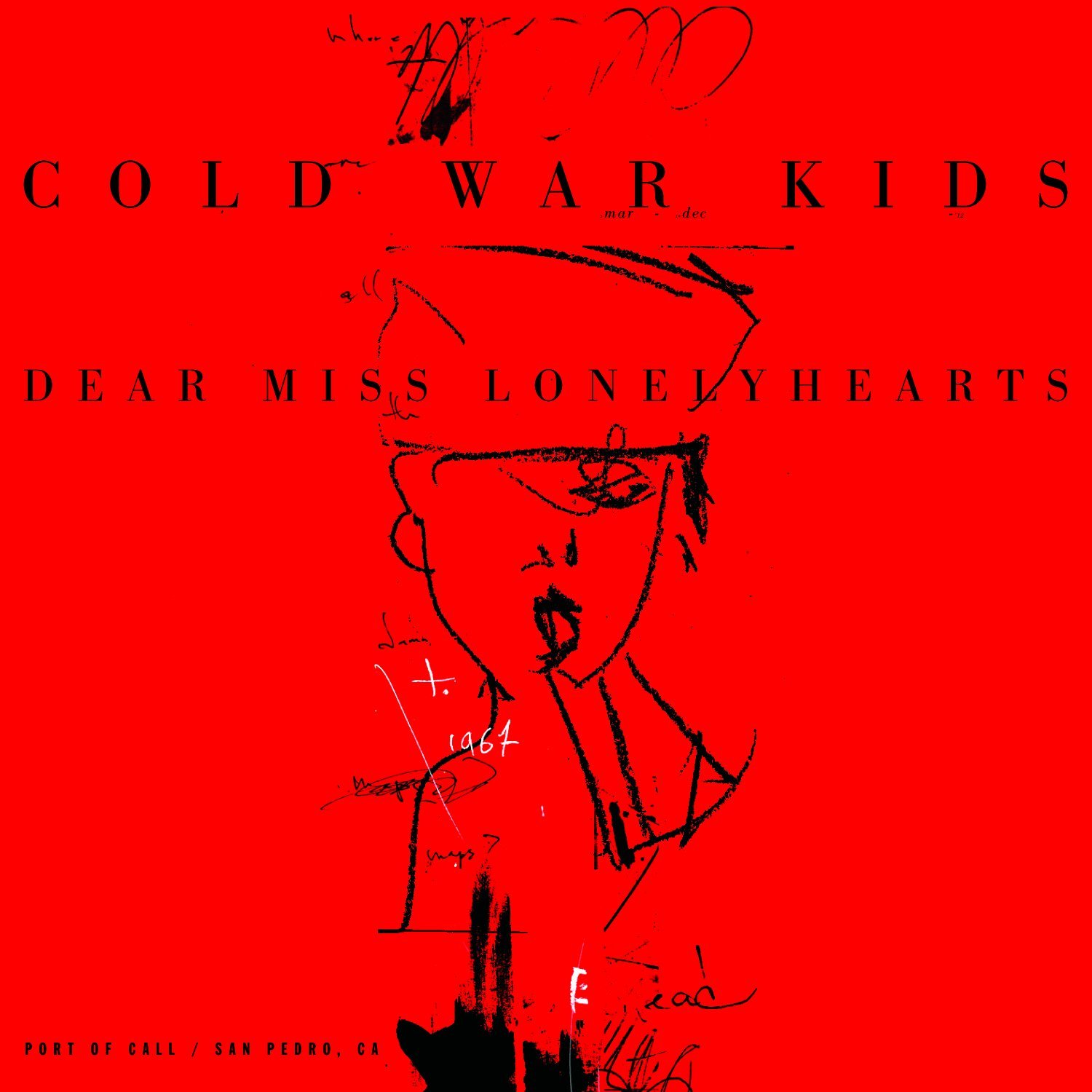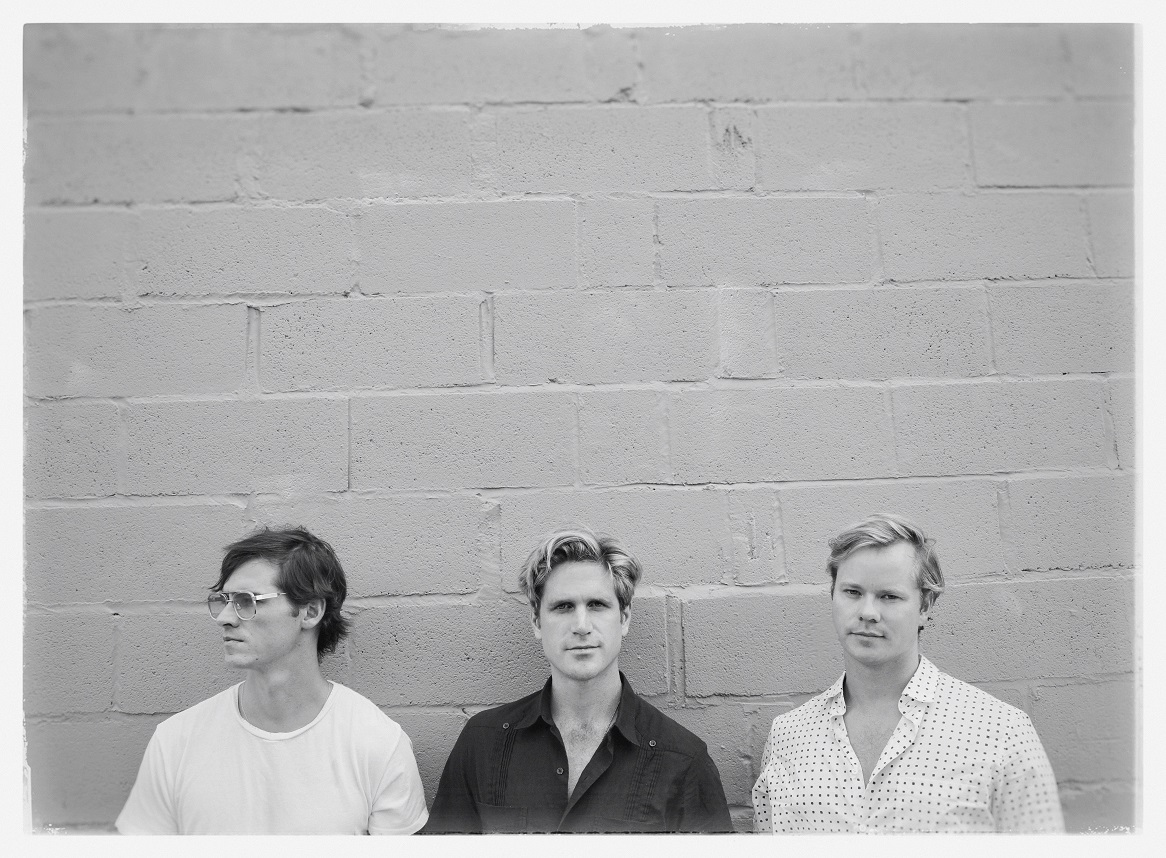Atwood Magazine sits down with Jeff Kite, keyboardist for The Voidz, to describe the contributions of new album ‘Like All Before You’ to the ever-expanding world they have built.
Stream: ‘Like All Before You’ – The Voidz
There is something exciting about using everything that you can. Instead of saying music was better when people didn’t have computers in the room, we prefer to use it all.
“Some might just not be ready for the truth,” Julian Casablancas insists on “Flexorcist,” a track from The Voidz’s latest and third record, Like All Before You.
This is the essence of The Voidz: A commitment to all that is true, good, and noncommercial.
In fact, listeners are never “ready” for what The Voidz have to offer. Formed in 2013 by the frontman of The Strokes, Julian Casablancas, the band is a no-holds-barred endeavor of experimentation and creativity.
As keyboardist Jeff Kite explains, “Our approach is what it’s always been: we are six friends who like to write and record songs together.” The Voidz set out to make a record because they like it; the mishmash of noises work in the musician’s ear.

Celebrated examples include “Human Sadness,” an eleven minute rock and roll robotic manifesto, and “QYURRUS,” a fever dream of Eastern melismas. Like All Before You sees The Voidz through a virtual world that ultimately leads them to a roller rink suffocated by cigarette smoke and bathed in red light.
The bulk of the record has a demo-type feel. Despite the record’s sonically futuristic tendencies, the lyrics are stuck in a time warp. Casablancas curses the way things have been and the way things will be, lamenting, “Always back of the class and back row bus ride.”
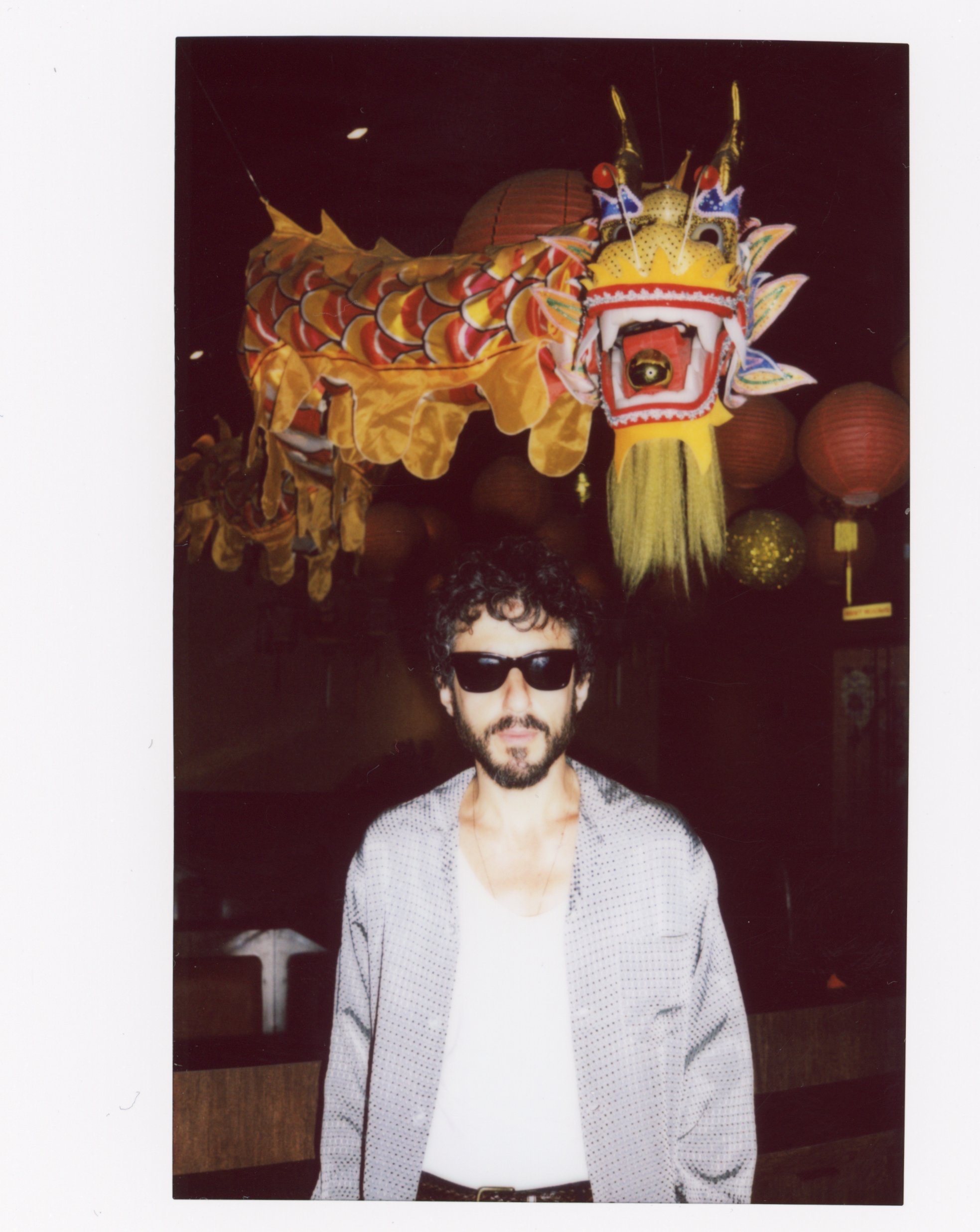
The Voidz are at their strongest in moments of heavier instrumentation.
“Flexorcist” features some of the record’s best moments; the cymbals lie ahead of the beat, propelling the track forward into a fugue-like guitar solo that J.S. Bach would be proud of. “Prophecy of the Dragon” is the love child of Master of Puppets and an ‘80s arcade game theme.
The record is a testament to the fact that no one knows The Voidz’ next move, least of all the six members of the band.
Atwood Magazine sits down with Jeff Kite, keyboardist for The Voidz, to describe the contributions of Like All Before You to the ever-expanding world they have built.
— —
:: stream/purchase Like All Before You’ here ::
:: connect with The Voidz here ::
Watch: “Flexorcist” – The Voidz
A CONVERSATION WITH THE VOIDZ

Atwood Magazine: Six years after Virtue comes Like All Before You. What have you guys been up to since the 2018 release?
Jeff Kite: We knew we were going to do something else after Virtue. After one year of that album cycle, we recalibrated and started recording new songs. We have a Dropbox full of demos and stuff to get to. We didn’t think it would take this long to get another record out, but things happened in the world, of course. We put out songs with Mac Demarco, did a song for Grand Theft Auto. We tried to fit in as much as we could while everyone was juggling their schedules.
What did the timeline look like for “Infinity Repeating”?
Kite: Julian started that during the time we were making Tyranny. He never really finished that track because they knew “Instant Crush” would be the release. Over the years, they [Daft Punk] would come to our shows, and there was a feeling that we should get back to that song. Julian asked if we could get our hands on it, and we got the session over to our studio. That song was a ten year journey of its own.
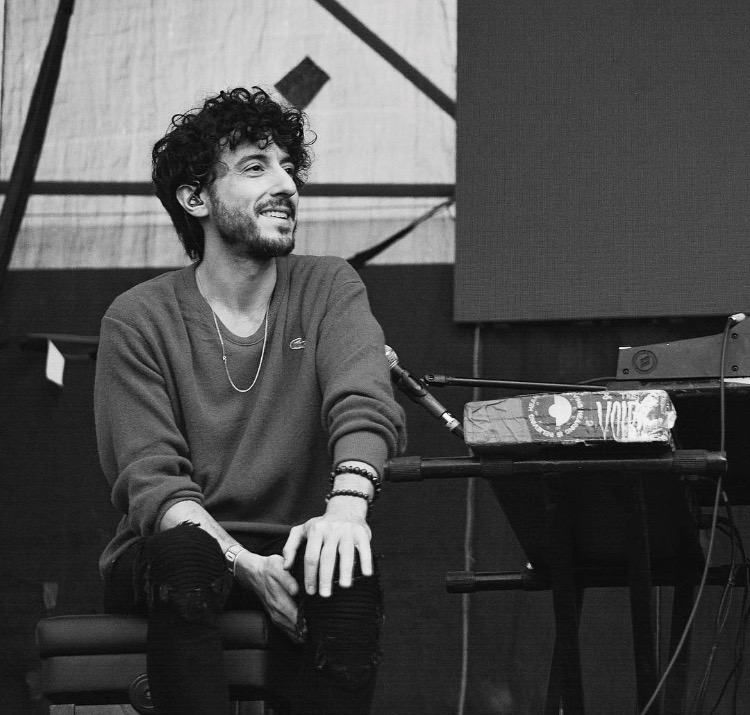
So Julian is acting musical director.
Kite: He’s definitely maestro-ing in the room. We are all sending and contributing ideas. We’re all at our stations and he has his vocal mic or keyboard to noodle with. A lot of times an idea lives in the Jeremy folder or the Jake folder. Julian will sometimes put those two things together.
Once we reach the mixing stage and start thinking about artwork or visuals, the concept develops further. It’s mainly trying to make things that feel not formulaic and not predictable.
Has that dynamic ever changed?
Kite: Honestly, I don’t think so. We’ve never sat down and said this is what we’re trying to do this time. We’ve amassed a large folder of demos that we make and send to Julian. Each time we get together to work, we get on the same page about what ideas are interesting to us. Whatever Julian wants to sing on right away is a good sign.
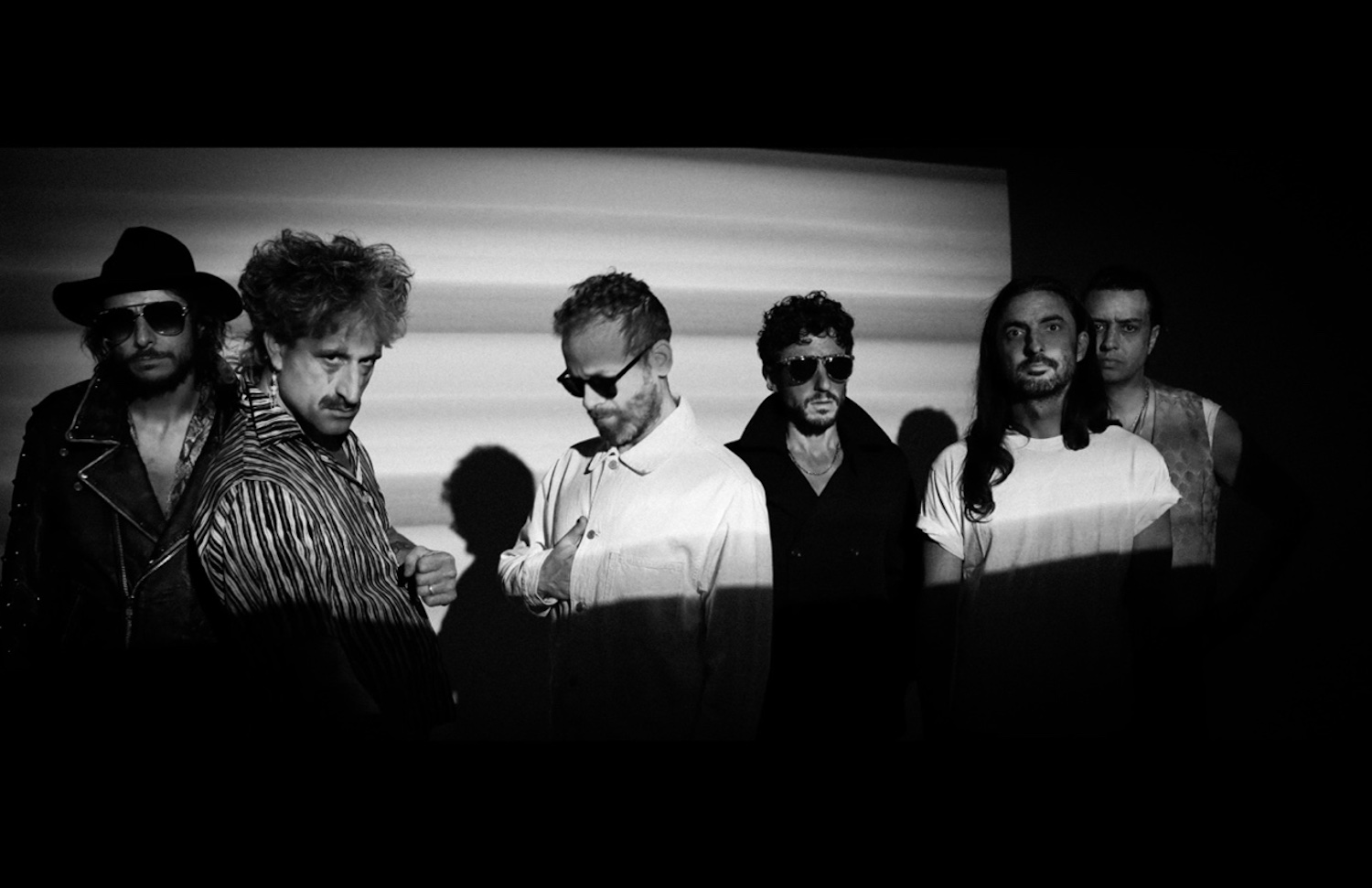
It’s been really interesting watching The Strokes incorporate more technology into their music. I see a similar trend with The Voidz. Can you describe the change in your production and recording techniques?
Kite: It’s a hodgepodge of recording techniques on Virtue and Tyranny. We were working with a producer named Shawn Everett. We were recording to tape and using older tools. There is something exciting about using everything that you can. Instead of saying music was better when people didn’t have computers in the room, we prefer to use it all. There’s a good argument to be made both ways. Ultimately, the first phase is always the six of us in a room with our instruments. We will try our best to open this gateway to the song first. We want to be excited about it as six musicians in a room. Then we get to Pro Tools and multitracking.
How do you go from that to a song like “Prophecy of the Dragon,” where there are so many twists and turns?
Kite: That song in particular began with the riff. Jeremy had it and we jammed on it. It lived as its own idea, it went in the dropbox. Julian had that chord progression on the chorus, but it was in a different key. We all got together and figured out the right key and married the riff and chorus together. The end was an improvisation. That song is a perfect example of what our process is.
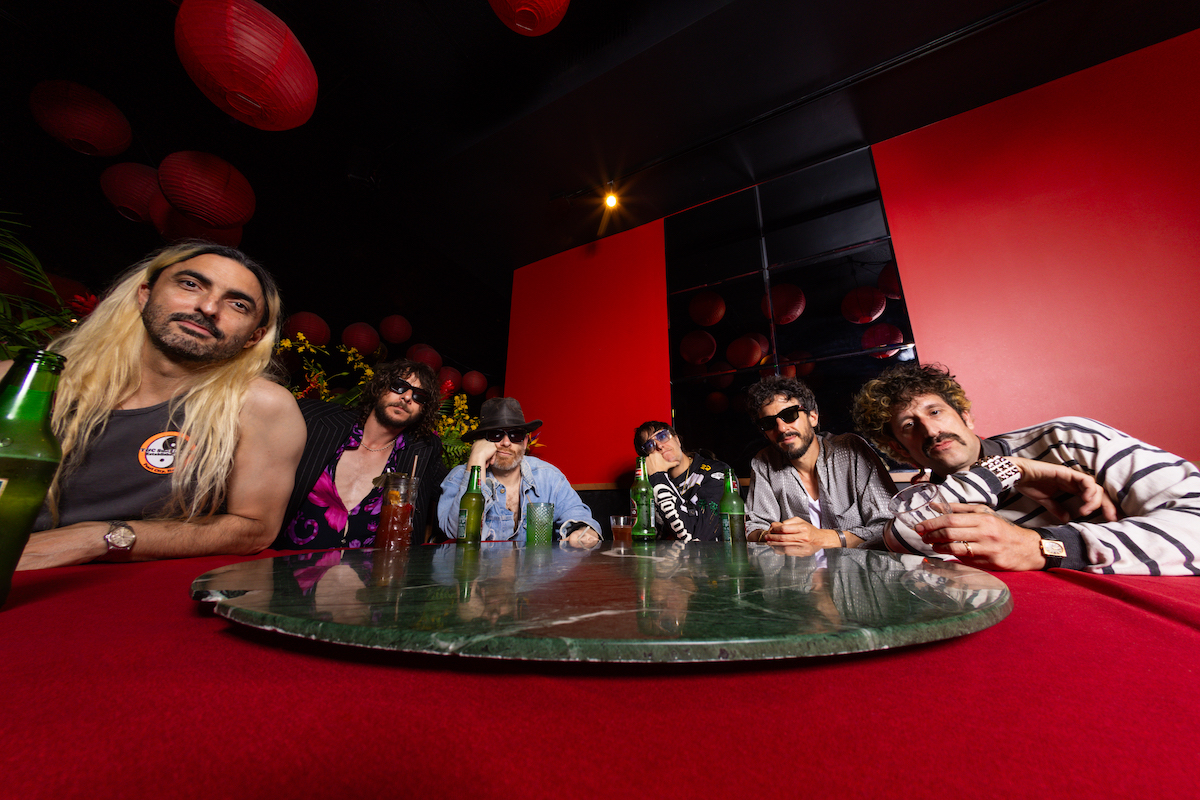
When listening, I heard a heavy ‘80s alt-rock influence in the record, like Depeche Mode, New Order, and The Cure.
Kite: I remember The Cure being mentioned a couple times. For “When Will the Time of These Bastards End,” I personally had a Depeche Mode feeling in the back of my mind.
Can you give me three songs that were on rotation?
Kite: We were very inspired by a compilation “Music from Saharan Cellphones” on a label called Sahel Sounds. A few songs had autotune on them and Julian thought that was very interesting. Amir would bring in a lot of Turkish music and we loved “Gurbet” by Özdemir Erdoğan. Jeremy could bring in a Kiss record that has things we think are cool, or Alex could bring in J Dilla.
Well, what’s cool is cool.
Kite: Exactly. Speaking in genre has always been hard for us. I think we incorporate many things into our own sound.
That’s the coolest thing about the project. You do so many things but it always sounds like The Voidz.
Kite: It’s what I love about it. Also, what keeps it fun and interesting. We have a very open attitude.
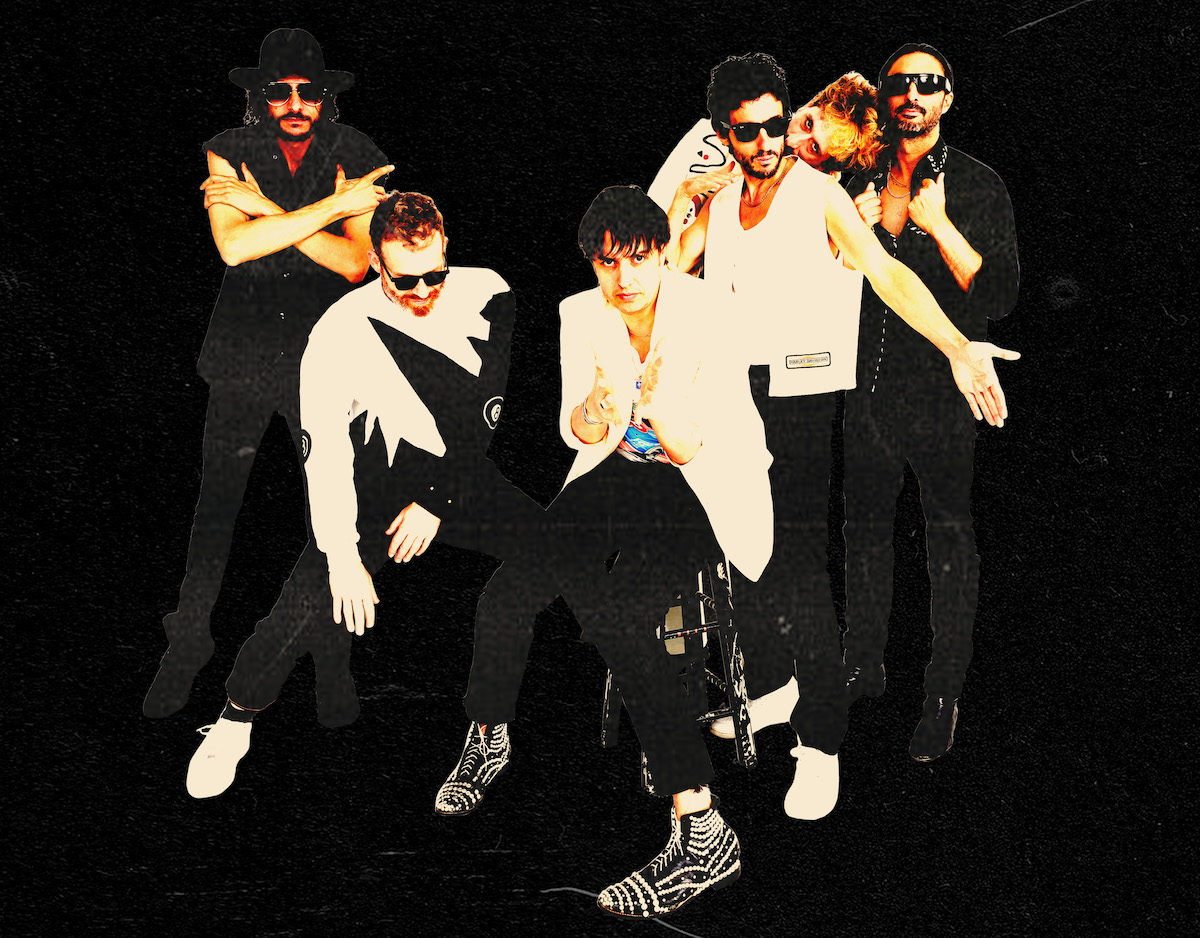
Our approach is what it’s always been: We are six friends who like to write and record songs together.
Because you guys are buds!
Kite: There’s that attitude even in how we release music. None of this is the end of the world. This record has the least amount of songs. There’s a lot of music on those first two albums. None of it feels old to me, when I go back and reminisce.
Julian has famously referred to The Voidz as “prison jazz.” How would you describe the essence of the band?
Kite: Our approach is what it’s always been: we are six friends who like to write and record songs together. I don’t think we’re ever looking down from 30,000 feet to find out what the story is. It’s also hard as someone inside the bubble to objectively critique it. As an outsider, it makes sense that there is a journey or story that I’m not even aware of. That’s the beauty of it.
— —
:: stream/purchase Like All Before You’ here ::
:: connect with The Voidz here ::
— — — —

Connect to The Voidz on
Facebook, Twitter, TikTok, Instagram
Discover new music on Atwood Magazine
© Cheryl Georgette
:: Stream The Voidz ::

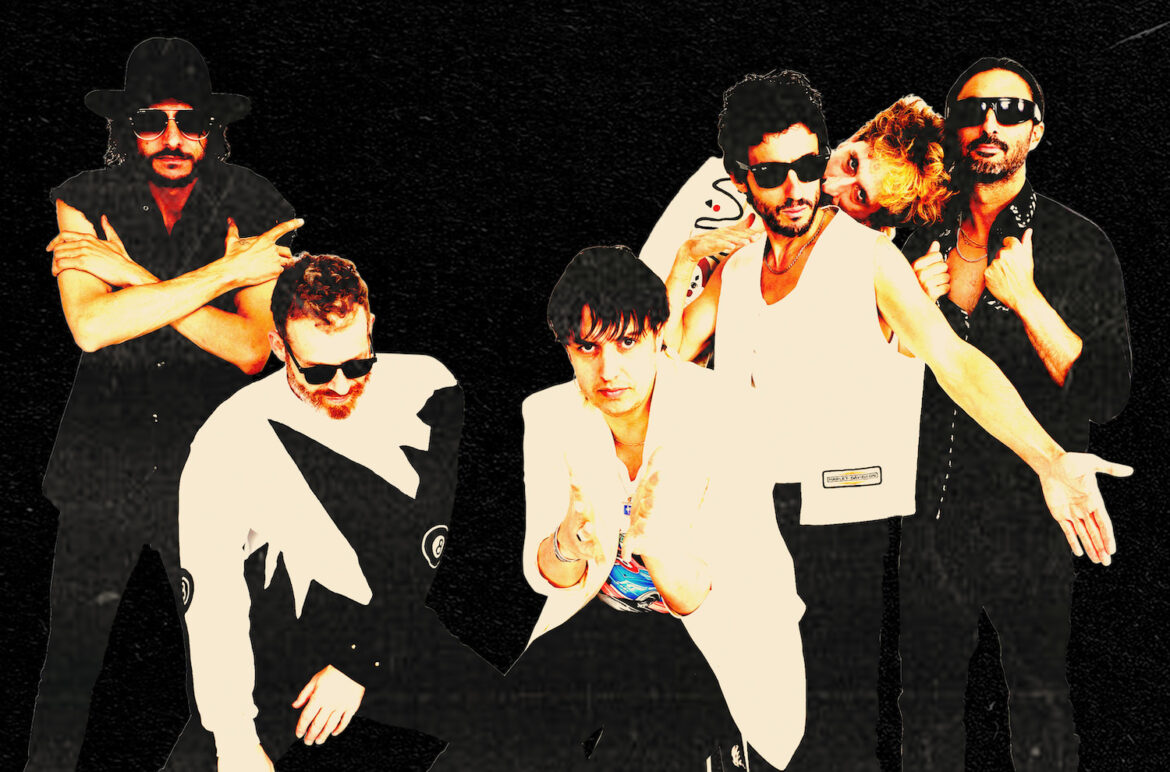
 © Cheryl Georgette
© Cheryl Georgette
